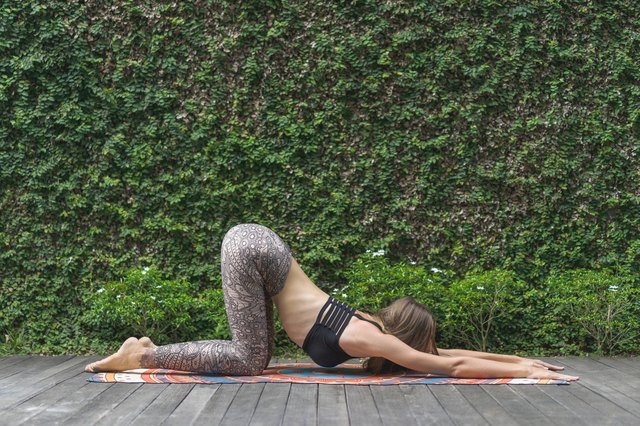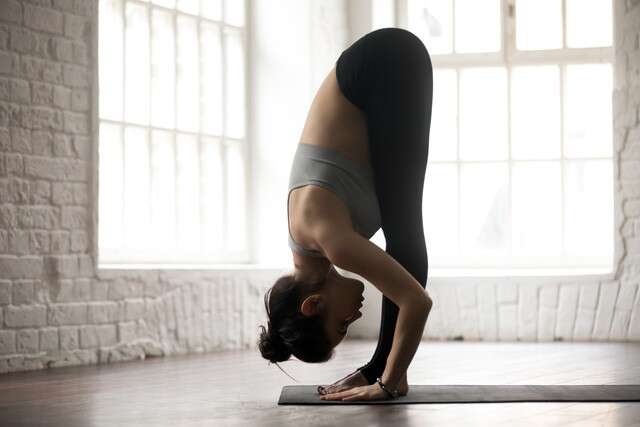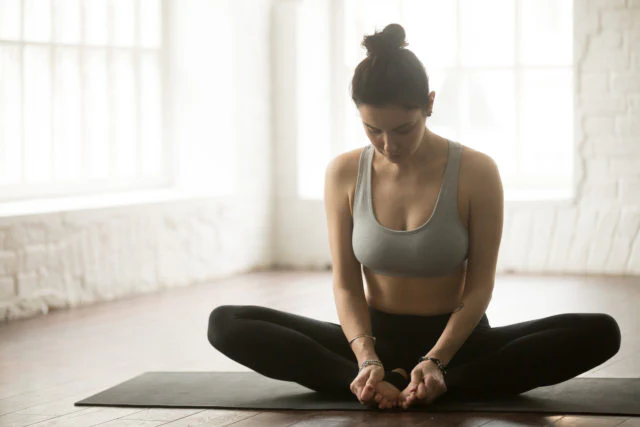Ever found yourself standing on your tiptoes, gazing into the mirror, and wishing you were just a bit taller? Or perhaps you’ve spent countless hours in Pilates classes, hoping the promised ‘lengthening’ of muscles would add a few coveted inches to your height. The belief that stretching exercises can increase your height is surprisingly common. But how much truth is there to it?
In the intriguing world of fitness and body growth, stretching is often heralded as a secret height booster. But is it really? Can the adult body, fully developed and past its growth phase, actually gain height through stretching? Or is this just another fitness myth waiting to be debunked? Let’s find out the mystery together.

Contents
Does Stretching Make You Taller?
Stretching alone does not make you taller in the sense of increasing your actual height. However, regular stretching exercises can improve your posture and spinal alignment, which may make you appear slightly taller.
During growth periods, such as adolescence, proper stretching, and exercise can help maintain good posture and prevent issues like spinal compression, which could potentially stunt growth. Additionally, stretching can help relieve tension in the muscles and promote overall flexibility, which contributes to better posture and a more elongated appearance.
While stretching can have positive effects on your overall health and well-being, including flexibility and posture, its ability to increase your height is limited to optimizing your existing height rather than actually adding inches to your stature.
What Are the Benefits of Stretching?
Stretching offers a wide range of benefits for both physical and mental well-being. Some of the key advantages of incorporating stretching into your routine include:

-
Improved Flexibility: Stretching regularly helps to increase flexibility by lengthening tight muscles and improving joint range of motion. This can enhance athletic performance and reduce the risk of injury during physical activities.
-
Enhanced Range of Motion: Stretching exercises help to maintain or improve the range of motion in your joints, allowing you to move more freely and perform daily activities with greater ease.
-
Better Posture: Stretching targets muscles that may become tight and contribute to poor posture. By loosening these muscles and promoting proper alignment of the spine, stretching can help improve posture and reduce the risk of back pain and related issues.
-
Reduced Muscle Tension and Stress: Stretching can help alleviate muscle tension and tightness, which can build up as a result of stress, prolonged sitting, or physical activity. It promotes relaxation and can have a calming effect on the body and mind.
-
Improved Circulation: Stretching increases blood flow to the muscles, which can help deliver oxygen and nutrients more efficiently. This can aid in muscle recovery after exercise and promote overall cardiovascular health.
-
Injury Prevention: By improving flexibility and range of motion, stretching can help prevent injuries such as strains, sprains, and muscle pulls. It also promotes better balance and coordination, reducing the risk of falls and accidents.

-
Enhanced Athletic Performance: Incorporating stretching into your pre- and post-workout routine can help optimize muscle function and performance during physical activities. It can also aid in muscle recovery and reduce post-exercise soreness.
-
Stress Relief: Stretching exercises, particularly those that involve deep breathing and mindful relaxation techniques, can help reduce stress levels and promote a sense of well-being. This can have positive effects on mental health and overall quality of life.
5 Stretches to Help Your Posture Look Taller
Even though stretching won’t permanently increase your height, it can improve your posture which can make you look taller and feel more confident. Here are 5 stretches that target key muscle groups to improve your posture:

1. Doorway Chest Opener::
- Stand in a doorway with your forearms resting on either side of the doorframe, elbows bent at 90 degrees.
- Slowly lean forward from your shoulders, keeping your back straight, until you feel a stretch in your chest.
- Hold for 15-30 seconds, then slowly return to the starting position.
- Repeat 2-3 times.
2. Neck Flexion Stretch::
- Sit or stand with good posture.
- Gently tuck your chin towards your chest, lengthening the back of your neck.
- Maintain a neutral gaze and avoid straining your neck.
- Hold for 15-30 seconds, then slowly return to the starting position.
- Repeat 2-3 times.
3. Seated Spinal Twist::
- Sit on the floor with your legs extended in front of you.
- Bend your right knee and place your right foot flat on the floor outside of your left thigh.
- Twist your torso to the right, looking over your right shoulder.
- Place your left elbow on your right knee for a deeper stretch (optional).
- Hold for 15-30 seconds, then repeat on the other side.
- Do 2-3 repetitions per side.
4. Standing Hamstring Stretch::
- Stand with your feet hip-width apart.
- Hinge at your hips and slowly bend forward, reaching towards your toes. Keep your back flat and knees slightly bent if needed.
- Feel the stretch in the backs of your thighs.
- Hold for 15-30 seconds, then slowly return to the starting position.
- Repeat 2-3 times.
5. Plank::
- Start in a push-up position with your forearms on the floor and your elbows shoulder-width apart.
- Keep your body in a straight line from head to heels, engaging your core muscles.
- Hold for as long as you can comfortably maintain good form, aiming for 30-60 seconds if possible.
- Rest for 30 seconds, then repeat 2-3 times.
Frequently Asked Questions
1. Can I actually grow taller by stretching?
While stretching brings several benefits such as increasing flexibility, enhancing muscle health, and improving posture, it does not lead to an actual increase in height. Genetics and bone length are the primary determinants of one’s height.
2. What are the benefits of stretches like the Chest Opener, Cobra Pose, and Downward Dog?
These specific stretches help bolster posture and may make an individual appear taller. Consistently performing these stretches can also help strengthen the core and boost overall confidence.
3. Is there a way to grow taller after 25?
Unfortunately, there’s no scientific evidence that proves one can increase their height after the age of 25. Many mistakenly believe they can grow taller in their thirties or forties by taking human growth hormone (HGH).
4. How can I tell if I’ll grow taller?
Factors that could possibly indicate an increase in height include changes in body proportions, clothing becoming tighter, joint and muscle pain, an increased appetite, changes in shoe size, shifts in posture, and developmental milestones.
5. How frequently should I stretch?
Healthy adults should engage in flexibility exercises such as stretches, yoga, or tai chi for all major muscle-tendon groups at least two to three times a week. Ideally, spend a total of 60 seconds on each stretching exercise for optimal results.

Hello, I’m Ravindra. Over the years, I’ve immersed myself deeply into the world of fitness and health, transforming both my body and mind. Writing has allowed me to share my journey, insights, and expertise with those just starting out and seasoned fitness enthusiasts alike. Beyond just routines and diets, I believe in inspiring others to adopt a holistic approach to well-being.
